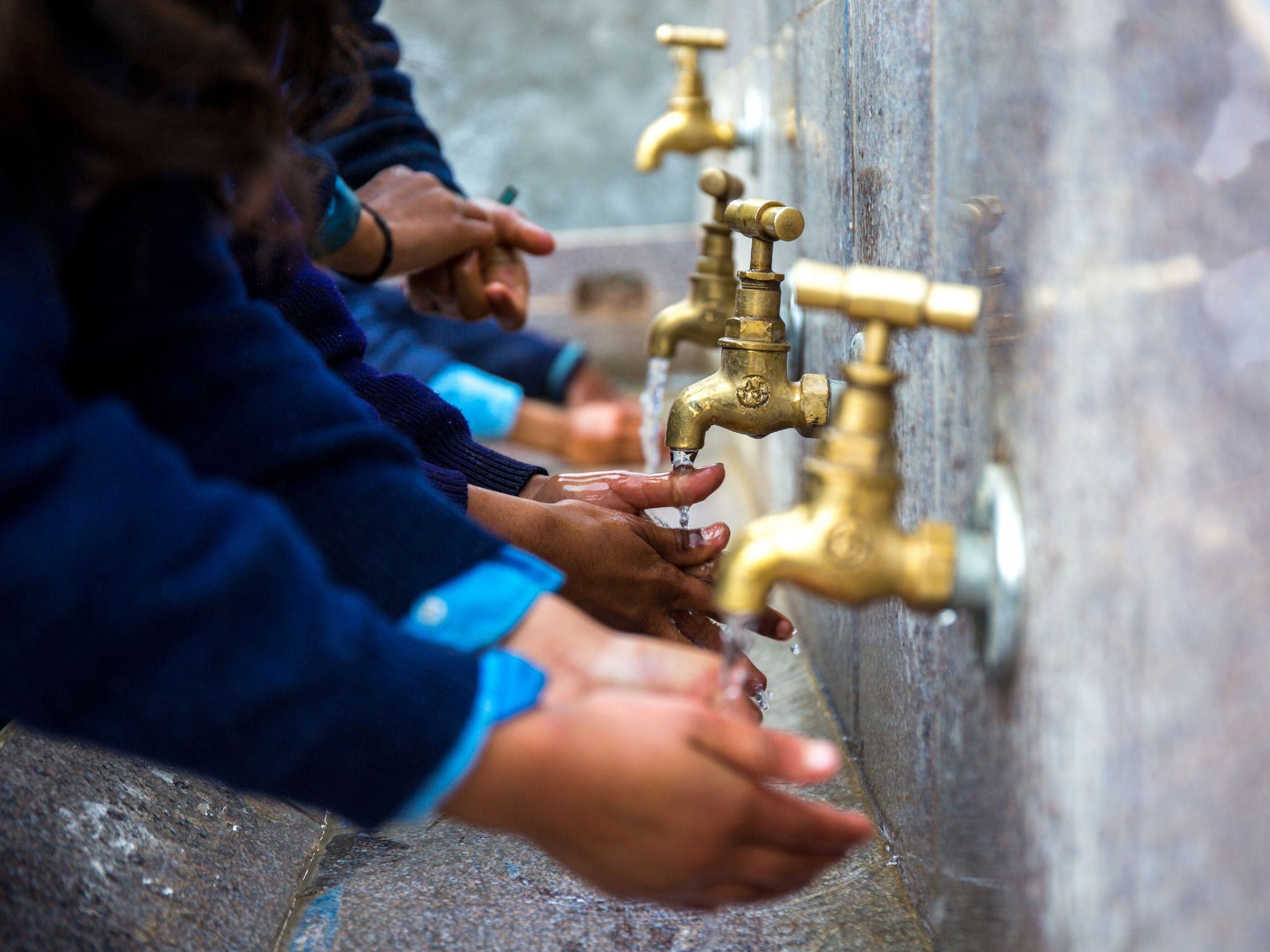Why government cuts to clean water projects are doubly short-sighted
What is truly baffling is the timing, coming six months before the UK government is to host the Cop26 climate summit, writes Myriam Sidibe


Earlier this week, a leaked ministerial briefing from the Foreign, Commonwealth and Development Office (FCDO) revealed the first details of the plans to cut the bilateral foreign aid budget.
We discovered that the UK government is looking to reduce bilateral aid to national governments to fund water, sanitation and hygiene (WASH) from £150m in pre-pandemic 2019 to £30m. That’s a drop of 80 per cent.
For years we have made the case to the UK government that having clean water, a decent toilet and being able to practise hygiene is the foundation stone for development – it is almost impossible to escape extreme poverty without these basics. And Britain has long been a pioneer in WASH investment.
The Covid-19 pandemic made the case, we assumed, even more clearly, that health centres without running water, and used by 1.8 billion people, risk becoming centres of infection. And so the news came as a major blow.
Even if the government wasn’t swayed by a century and a half of evidence that dirty water kills, it could have followed public opinion. As many commentators – and the briefing itself – pointed out, water and toilets are a popular area for aid spending among the British public. WaterAid polling conducted by ComRes in 2020 showed that British adults believe that water, hygiene and sanitation should receive the greatest investment from the UK’s foreign aid budget.
For a Conservative Party traditionally known for its focus on getting value for the taxpayer, WASH is a no-brainer – it reduces sickness levels, cuts healthcare costs, and frees up time for school and work, resulting in a return of investment of £4 for every £1 spent. No good business person would walk away from that deal.
It is especially relevant now, as Covid-19 threatens us and our way of life. Washing hands with soap is widely recognised as a critical intervention to counter the spread of coronaviruses. While the pandemic is easing in the UK and other affluent countries, it is reaching new peaks in India, and continues to threaten poorer countries that find themselves far behind in the race to vaccinate.
Three billion people, 40 per cent of the world’s population, lack the soap and water they need to wash their hands. Three-quarters of these people live within the poorest and most vulnerable countries, where access to a vaccine tragically seems as though it may be months if not years away.
This puts us all – vaccinated or not – at risk, because as long as Covid-19 is raging elsewhere, and perhaps mutating into strains not stopped by our current vaccines, Brits and everyone else will be vulnerable. As FCDO minister Wendy Morton has herself pointed out: “No one is safe until we are all safe.”
It is also an area in which Britain has a strong track record – in particular in building innovative partnerships with the private sector, which recognises the economic boost brought to a clean and healthy community. Just last week, the government announced that 1 billion people, in places where little or no WASH services are available, have been provided with soap and sanitiser, along with infrastructure and education, since the start of the pandemic.
This is thanks in no small part to its partnership with Unilever. This partnership maximises the dividends brought by the work of UK Aid, who are piping in clean water for communities that currently have to rely on muddy ponds, streams or rivers. This sort of relationship, which maximises the impact of taxpayer investments, is now at risk.
Even more baffling is the timing, coming six months before the UK government is to host the Cop26 climate summit, an event that it hopes will showcase post-Brexit Britain as a world leader. Yet those communities most at risk from changing weather patterns are those whose inhabitants have to walk kilometres each day in search of water. WaterAid estimates from the government’s own figures that these cuts will result in 10 million people remaining in the perilous position of not knowing whether tomorrow they will go thirsty.
While noting that these cuts will spark opposition, the briefing argues that they are necessary at a time when domestic needs are greater and government revenues are impacted by Covid-19. There’s logic in linking aid to the size of the economy: that’s why it’s set at 0.7 per cent of national income, falling naturally as the economy falls. But it’s shameful and foolhardy to cut it further during a global pandemic, and the WASH programme might be the least sensible area in which to make cuts.
Fortunately, many private organisations are eager to help out. But they aren’t sure how, and they know the limited value of writing a cheque. Those already operating in the WASH sector can work with them and draw on their enormous resources to help in the battle.
Some of these organisations already have a substantial presence in developing countries, and would be ideally positioned to contribute. But with the government aid budget cut to the bone, few if any such partnerships are likely to happen. And so the world’s most vulnerable will lose out twice over.
Now is the time for taxpayers to send a strong message to their MPs about the priorities they clearly support – for everyone’s long-term benefit.
Dr Myriam Sidibe is a professor of practice at the London School of Hygiene and Tropical Medicine
Join our commenting forum
Join thought-provoking conversations, follow other Independent readers and see their replies
Comments